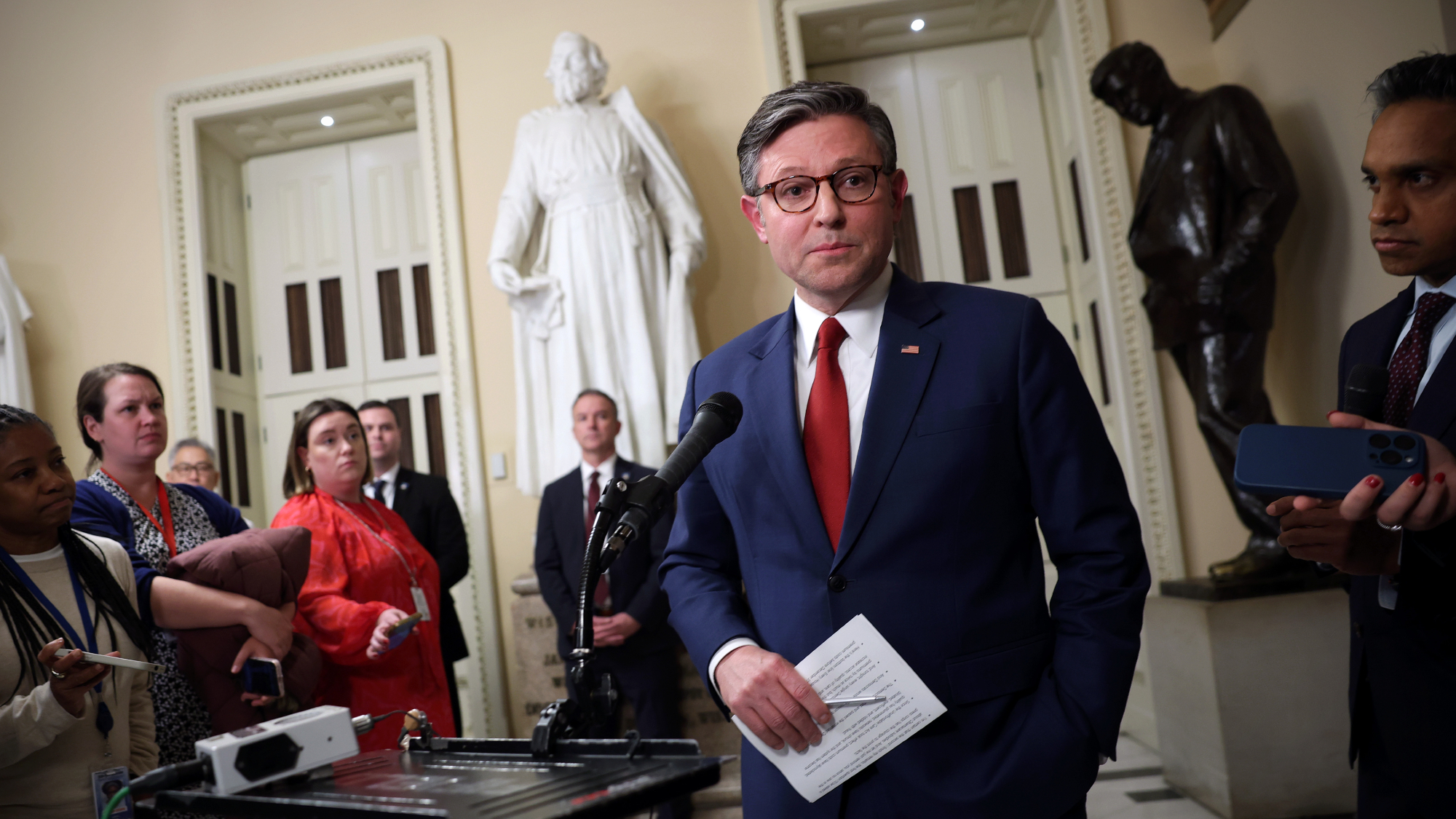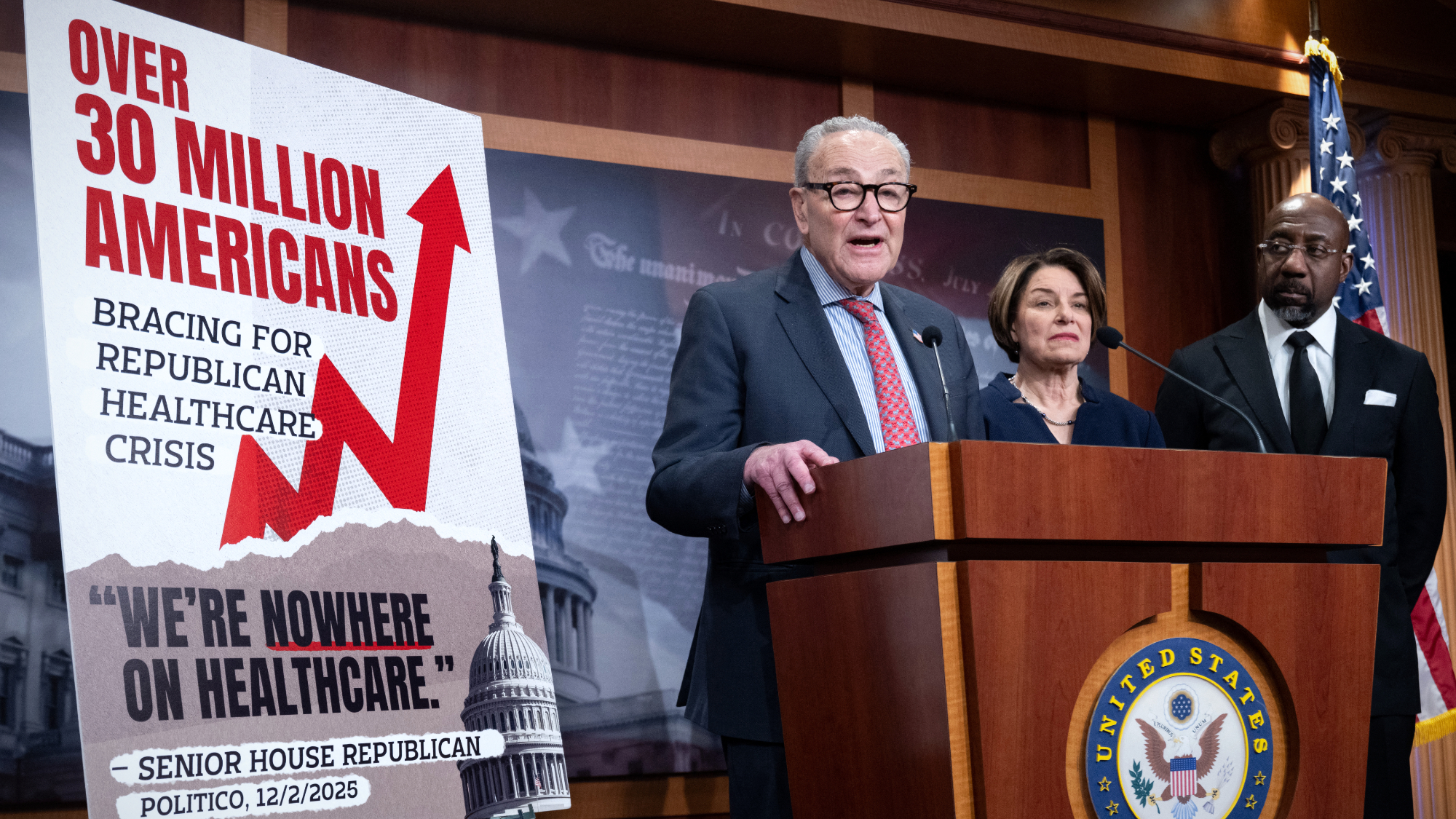Can Biden save Medicare?
The federal insurance program for seniors is in big trouble. What's the president's plan?


A free daily email with the biggest news stories of the day – and the best features from TheWeek.com
You are now subscribed
Your newsletter sign-up was successful
President Biden has unveiled a plan to save Medicare from a looming funding crisis. In a New York Times op-ed, Biden proposed lowering the program's costs by giving the government more authority to negotiate lower prices for prescription drugs. He also said Americans who make more than $400,000 should see an increase in their Medicare tax rate, from 3.8 to 5 percent. "This modest increase in Medicare contributions from those with the highest incomes will help keep the Medicare program strong for decades to come," Biden wrote.
The proposal comes "as forecasters warn that a key Medicare trust fund will run into major financial problems within five years," The Washington Post reports. The program provides insurance for around 60 million older Americans, but "is spending money at a much faster clip than it brings in funding." If a solution can't be found, automatic cuts would start in 2028 — creating a "nightmare scenario" that might see senior citizens forced to go without some care.
Biden's proposal is intended "to extend the life of Medicare for another 25 years," NPR reports. But it comes amidst a spending fight with House Republicans and the possibility of an economy-killing national debt default in June, unless both sides can agree to raise America's debt limit. The president has accused Republicans of wanting to cut Social Security and Medicare as part of their demands, something GOP officials deny. Biden's proposal seems intended, in part, to put Republicans on the defensive. "Republican plans that protect billionaires from a penny more in taxes — but won't protect a retired firefighter's hard-earned Medicare benefits — are just detached from the reality that hardworking families live with every day," he writes.
The Week
Escape your echo chamber. Get the facts behind the news, plus analysis from multiple perspectives.

Sign up for The Week's Free Newsletters
From our morning news briefing to a weekly Good News Newsletter, get the best of The Week delivered directly to your inbox.
From our morning news briefing to a weekly Good News Newsletter, get the best of The Week delivered directly to your inbox.
Why is Medicare in trouble?
Medicare was already going to face strains as the population ages. The Hill's Joseph Chamie writes that older Americans' "burgeoning needs for financial aid, caregiving, and assistance, together with the rising costs for medical treatment, health care, and drugs" was putting pressure both on household budgets and government programs designed to help them. When Medicare was created in 1965, he writes, just 9 percent of the population was older than 65. Now? That number is 17 percent. By mid-century, it could rise to 21 percent.
But the COVID-19 pandemic created problems, as well. In their 2022 annual report, the Medicare Board of Trustees said the program was "dramatically affected" by a steep reduction in payroll taxes collected in 2020, as well as spending on coverage and testing for the disease itself. That was offset somewhat by a deep drop in spending on non-COVID care: Nobody went to the hospital in 2020 unless they absolutely had to.
"The most immediate issue confronting Medicare is solvency of its Hospital Insurance Trust Fund, which funds Part A benefits," The New York Times reports. (Part A covers services like inpatient hospital care, as well as care in hospice and skilled nursing facilities.) Democrats have long floated a tax hike on upper-income earners to solve the issue. Republicans in turn have contemplated raising the eligibility age for Medicare services, or perhaps privatizing the program.
What's next for Medicare?
A political fight, most likely. Biden's proposal "faces likely opposition from Republicans who control the House," Reuters reports. But it does allow the president to contrast himself with the GOP and its conservative members "who are calling for deep spending cuts as a condition for raising the debt ceiling," The Wall Street Journal says. Republicans say they're not interested in touching Medicare — but they haven't specified which programs they want to cut. Biden's Medicare proposal lays out his suggestions and effectively dares the GOP to come up with a counteroffer. The plan is an indication that Biden is "seeking a contrast with Republicans that will almost certainly resonate into next year's presidential campaign," the The Washington Post explains.
A free daily email with the biggest news stories of the day – and the best features from TheWeek.com
Even if a Medicare resolution is somehow in the offing — a big if — there are still other major issues facing the federal government and older Americans, CNN points out. Social Security is "facing severe funding problems." But it has a longer timeline, at least: While Medicare will start making cuts in five years without changes, Social Security has 12 years to go before benefits will be cut.
Joel Mathis is a writer with 30 years of newspaper and online journalism experience. His work also regularly appears in National Geographic and The Kansas City Star. His awards include best online commentary at the Online News Association and (twice) at the City and Regional Magazine Association.
-
 Switzerland could vote to cap its population
Switzerland could vote to cap its populationUnder the Radar Swiss People’s Party proposes referendum on radical anti-immigration measure to limit residents to 10 million
-
 Political cartoons for February 15
Political cartoons for February 15Cartoons Sunday's political cartoons include political ventriloquism, Europe in the middle, and more
-
 The broken water companies failing England and Wales
The broken water companies failing England and WalesExplainer With rising bills, deteriorating river health and a lack of investment, regulators face an uphill battle to stabilise the industry
-
 The ‘mad king’: has Trump finally lost it?
The ‘mad king’: has Trump finally lost it?Talking Point Rambling speeches, wind turbine obsession, and an ‘unhinged’ letter to Norway’s prime minister have caused concern whether the rest of his term is ‘sustainable’
-
 A running list of everything Donald Trump’s administration, including the president, has said about his health
A running list of everything Donald Trump’s administration, including the president, has said about his healthIn Depth Some in the White House have claimed Trump has near-superhuman abilities
-
 ‘The security implications are harder still to dismiss’
‘The security implications are harder still to dismiss’Instant Opinion Opinion, comment and editorials of the day
-
 House approves ACA credits in rebuke to GOP leaders
House approves ACA credits in rebuke to GOP leadersSpeed Read Seventeen GOP lawmakers joined all Democrats in the vote
-
 ‘This is a structural weakening of elder protections’
‘This is a structural weakening of elder protections’Instant Opinion Opinion, comment and editorials of the day
-
 House GOP revolt forces vote on ACA subsidies
House GOP revolt forces vote on ACA subsidiesSpeed Read The new health care bill would lower some costs but not extend expiring Affordable Care Act subsidies
-
 Senate votes down ACA subsidies, GOP alternative
Senate votes down ACA subsidies, GOP alternativeSpeed Read The Senate rejected the extension of Affordable Care Act tax credits, guaranteeing a steep rise in health care costs for millions of Americans
-
 Are Republicans going to do a deal on health care?
Are Republicans going to do a deal on health care?Today's Big Question Obamacare subsidies are expiring soon
